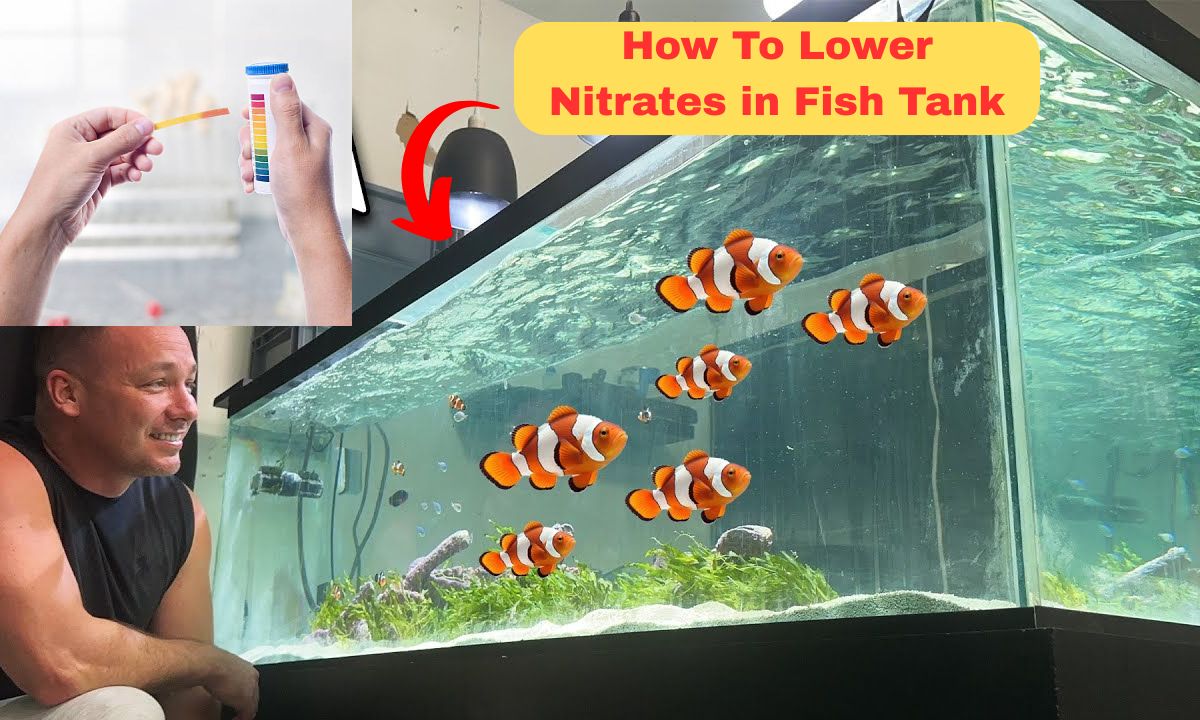Maintaining optimal water quality is crucial for the health and longevity of your aquarium inhabitants. One of the key parameters to monitor is nitrate levels. Elevated nitrates can lead to various issues, including stress, disease susceptibility, and excessive algae growth. This article explores effective methods to reduce nitrates in your fish tank, ensuring a thriving aquatic environment.
Understanding Nitrates in Aquariums
Nitrates are the end products of the nitrogen cycle, resulting from the breakdown of ammonia and nitrites by beneficial bacteria. While less toxic than ammonia and nitrites, high nitrate concentrations can still be harmful over time. In freshwater aquariums, it’s advisable to keep nitrate levels below 25 parts per million (ppm), with levels exceeding 50 ppm considered potentially harmful.
Effective Methods to Reduce Nitrates
1. Perform Regular Partial Water Changes
Conducting regular partial water changes is one of the most effective ways to lower nitrate levels. Replacing 20-30% of the tank’s water weekly helps dilute nitrates and other accumulated pollutants. In cases of significantly high nitrate levels, larger water changes of up to 40-45% may be necessary. However, avoid changing more than 50% at once to prevent shocking your fish.
2. Introducing Live Aquatic Plants
Live plants absorb nitrates as a nutrient source, thereby naturally reducing their concentration in the water. Fast-growing species such as Java Fern, Hornwort, Duckweed, and Water Sprite are particularly effective in nitrate uptake. Incorporating a variety of these plants can enhance the overall water quality and provide additional benefits like oxygenation and habitat enrichment.
3. Optimize Filtration Systems
Upgrading your aquarium’s filtration system can significantly aid in nitrate reduction. Consider using filter media designed to target nitrates, such as Seachem Matrix or Denitrate. Additionally, installing a denitrator filter, which facilitates anaerobic bacterial activity to convert nitrates into nitrogen gas, can be beneficial.
4. Maintain a Clean Substrate
Debris and waste can accumulate in the substrate, leading to increased nitrate levels. Regularly vacuuming the substrate during water changes helps remove detritus and prevent nitrate buildup. Utilizing a gravel vacuum can make this process more efficient.
5. Avoid Overfeeding
Overfeeding contributes to excess waste and elevated nitrate levels. Feed your fish only what they can consume within 3-5 minutes, and promptly remove any uneaten food. This practice minimizes organic waste decomposition, thereby reducing nitrate production.
6. Utilize Nitrate-Reducing Products
There are various products available that can help lower nitrate levels. Nitrate-removing filter media, resins, and chemical additives can be incorporated into your filtration system to assist in maintaining optimal water quality. Always follow the manufacturer’s instructions when using these products.
Frequently Asked Questions (FAQs)
What causes high nitrate levels in a fish tank?
High nitrate levels typically result from accumulated fish waste, uneaten food, decaying plant matter, and inadequate filtration. Overcrowding and overfeeding can exacerbate the issue.
How often should I test nitrate levels in my aquarium?
It’s advisable to test nitrate levels at least once a week to monitor water quality and detect any potential issues early.
Can high nitrates harm my fish?
Yes, prolonged exposure to high nitrate levels can stress fish, making them more susceptible to diseases and potentially affecting their growth and reproduction.
Are there specific fish species more sensitive to nitrates?
Certain species, such as discus and other cichlids, are more sensitive to elevated nitrate levels and require more stringent water quality management.
Do live plants eliminate the need for water changes?
While live plants help reduce nitrates, they don’t eliminate the need for regular water changes. Water changes are essential for removing other toxins and maintaining overall water quality.
By implementing these strategies and maintaining regular aquarium maintenance, you can effectively manage and reduce nitrate levels, ensuring a healthy environment for your aquatic life.
